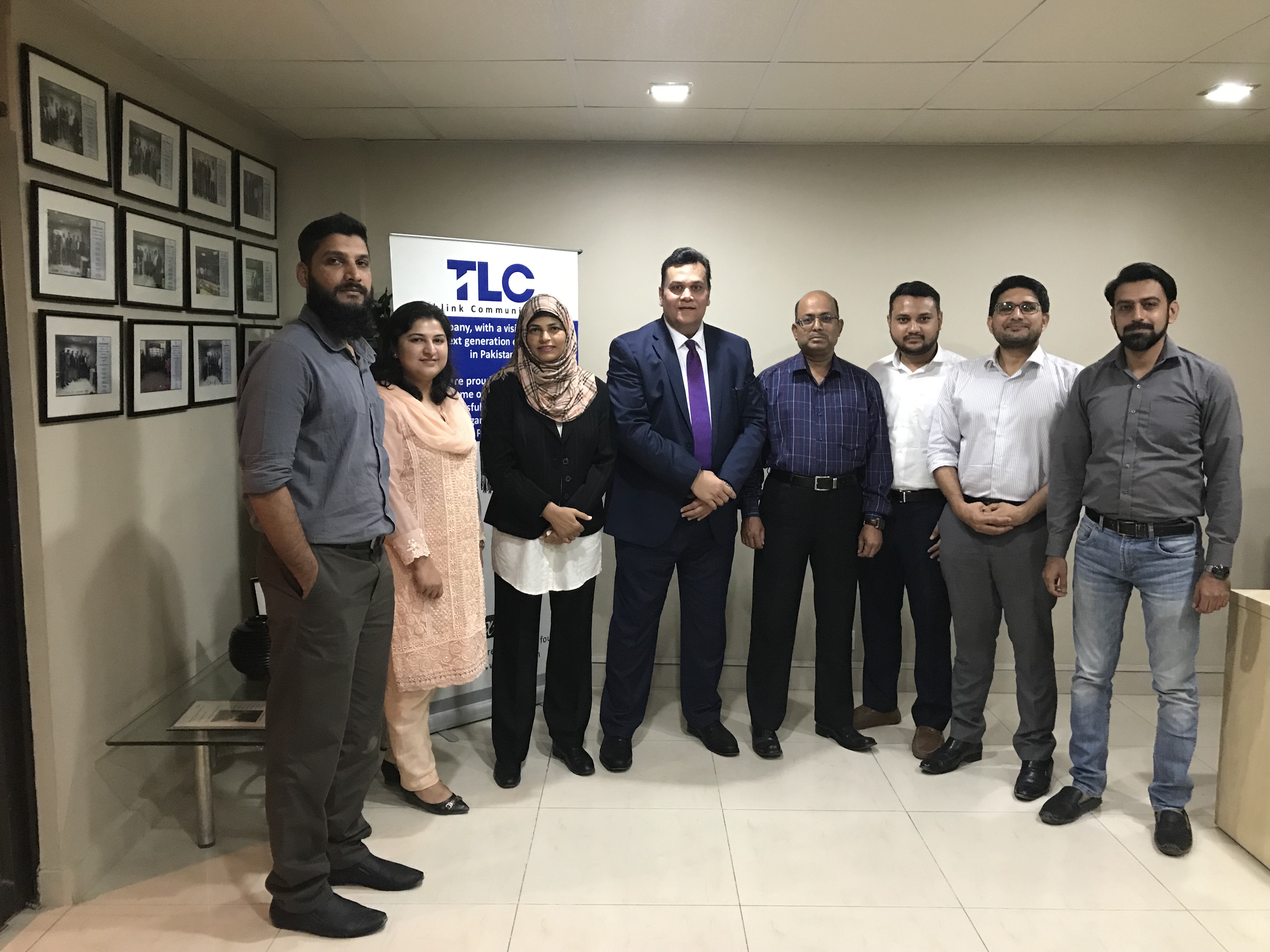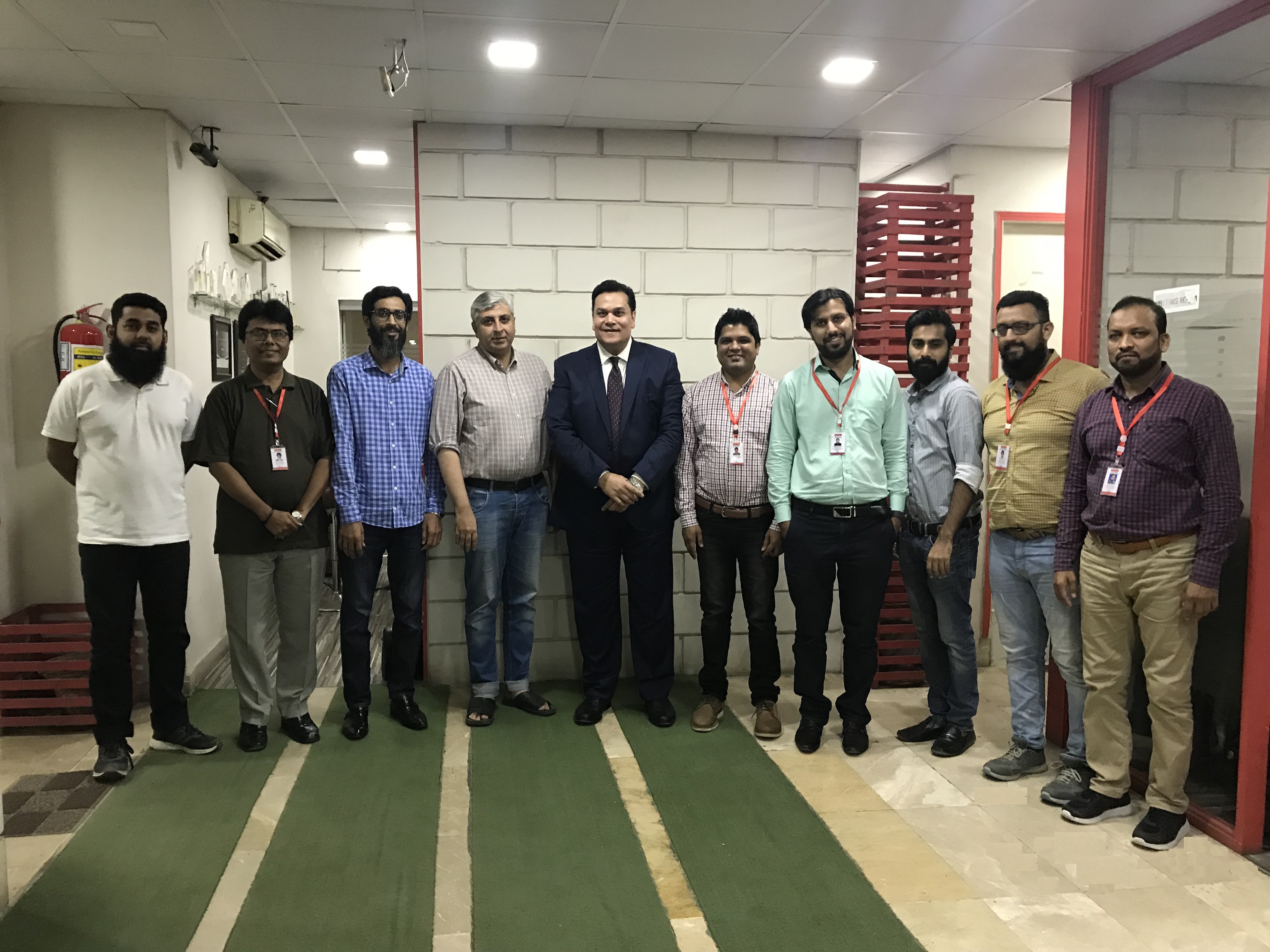| Course Title |
: The Core Fundamentals of Cybersecurity |
Course Duration
|
: 2 Day Online Intructor Led Workshop
: Online workshop is delivered
in two days, two units each day between 10:30 am to 1 pm and 3 pm to 5:30
pm |
| Course Fee |
: Available upon request (Write
to us at
info@tlcpak.com) |
| Course Location |
: TLC (Karachi), Customer Onsite,
and Online |
| Course Code |
: TN225 |
| Deliverables |
: Comprehensive Student Guide and
Workshop Certificate |
Customer onsite workshop can also
be conducted for customers in Lahore, and Islamabad
PURPOSE:
In the era
of digital transformation, the importance for having substantial knowledge
on cybersecurity is becoming essential skills to acquire for every technology
professional today. The reason behind is the protection of information
which is considered as one of the critical function for all enterprises.
Cybersecurity is a growing and rapidly changing field and it is vital that
the principal concepts that frame and define this increasingly pervasive
field are clearly understood by technology professionals who are involved
and concerned with the security implications of information Technologies.
This workshop is designed for this purpose, as well as to provide the insight
into the importance of cybersecurity, and the integral role of cybersecurity
professionals.
The training
course flow will be a mix of lectures & classroom discussions so that
participants can have a detailed understanding of various components of
cybersecurity technologies.
What is cybersecurity
all about?
A successful cybersecurity approach
has multiple layers of protection spread across the computers, networks,
programs, or data that one intends to keep safe. In an organization, the
people, processes, and technology must all complement one another to create
an effective defense from cyber attacks.
Cybersecurity is the practice of
protecting systems, networks, and programs from digital attacks. Thesecyberattacksare
usually aimed at accessing, changing, or destroying sensitive information;
extorting money from users; or interrupting normal business processes.
Implementing effective cybersecurity measures is particularly challenging
today because there are more devices than people, and attackers are becoming
more innovative.
After completing this
workshop, you will be able to:
-
Understand basic
cybersecurity concepts and definitions.
-
Define Network
security architecture concepts.
-
Recognize malware
analysis concepts and methodology.
-
Explain network
systems management principles, models, methods and tools.
-
Distinguish system
and application security threads and vulnerabilities.
-
Classify types
of incidents (categories, responses and timelines of response).
-
Outline disaster
recovery and business recovery and business continuity planning.
-
Comprehend incident
response and handling methodologies.
-
Understand security
event correction tools and how different file types can be used for analytical
behavior.
-
Be aware of the
basic concepts, practices, tools, tactics, techniques and procedure for
processing digital forensic data.
ABOUT THE INSTRUCTOR
This workshop shall be delivered
by TOGAF 9 Certified/IBM Certfied Infrastructure System Architect and an
experienced trainer with 25+ years of career experience imparting education
and training services both locally and internationally and have worked
for international enterprise technology vendors including IBM, Fujitsu,
and ICL. Our instructor holds various industry professional certifications
in the space of enterprise servers and storage technologies, Information
Security, Enterprise Architecture, ITIL, Cloud, Virtualization, Green IT,
and a co-author of 10 IBM Redbooks.
AUDIENCE:
This workshop
is intended for resources who/from:
-
Different LOB's
including business, application, audit, risk, compliance, information security,
IT operations, project management, and legal professionals with a familiarity
of basic IT/IS concepts who want to;
-
Want to learn
new basic trends in cybersecurity.
-
New to cybersecurity.
-
Interested in
entering the field of Cybersecurity.
-
Students and fresh
graduates.
-
Managers and Senior
IT and Business Leaders who want to refresh thier present knowledge.
A FLEXIBLE PRICING MODEL
FOR CORPORATE:
This workshop
can also be delivered for an organization at their premises with 40% reduction
is the cost subject to 10 -15 corporate users taking this session from
different LOB’s.
Workshop Summary
In a nut shell, this workshop shall
increase their focus on cybersecurity to protect sensitive data and systems.
No organization, regardless of size or industry, is immune to cyberattacks,
and just one breach could cause significant financial, reputational or
regulatory consequences. However, an effective control environment can
reduce the likelihood of a breach, enhance incident detection and response,
and accelerate recovery efforts to limit damage.
Moreover, two criteria can help determine
the effectiveness of a data security methodology. First, the cost of implementing
the system should be a small fraction of the value of the protected data.
Second, it should cost a potential hacker more, in terms of money and/or
time, to compromise the system than the protected data is worth.
PREREQUISITES:
Participants attending this workshop
should be familiar with basic Information Technology (IT) and Security
concepts, business challenges and the role of general system wide infrastructure
technologies and their applications.
COURSE OUTLINE
Unit 1 – Introduction to Cybersecurity
-
Exponential Data Growth –Some key facts
and figures.
-
The Evolution of Data increases storage
security threats.
-
A world without cybersecurity.
-
Most Frequently Targeted Industries
in 2018.
-
Top Security Concerns for the Executive
Management.
-
Security Vs. Safety in a view.
-
How to avoid Social Engineering &
Malicious Software.
-
Hacker tricks to avoid – Recommendations.
-
What is Cybersecurity? and Cyberspace
defined.
-
Differences between Information Security
and Cybersecurity.
-
Multiple layers of protection offered
by Cybersecurity.
-
Why is Cybersecurity important?
-
Why you need to make cybersecurity a
priority.
-
Types of cybersecurity threats and Malware
Detection.
-
Why is Cyber Resilience needed.
-
Top 11 ways poor Cybersecurity can harm
you.
-
Cyber Security Awareness –The 6 Layers.
-
Blueprint for Cybersecurity Success.
-
What are the objectives of Cyber Security?
-
Suggestions for building stronger Cybersecurity
defense.
-
Adoption of Cybersecurity best practices.
Unit 2 – Information Security Lifecycle
Management
-
Why Data Protection is important?
-
The 8 Principles of Cybersecurity Laws.
-
Life Cycle Management defined.
-
What is Information Security.
-
The Information Security Management
Lifecycle.
-
IT Security Lifecycle Model.
-
Keep your Security policy simple.
-
Information Security and Dependability.
-
Generalized Security Framework.
-
Traditional Approach to Security.
-
Enterprise Security in a View.
-
Security Architecture.
-
Consequences for not following security
management lifecycle.
-
Risks that turn your IT landscape into
a hacker’s gold mine.
Unit 3 – Managing Risks, Threats
and Vulnerabilities
-
Understand Fault Tolerance and Fault
Resilience.
-
Examining the Cost of Data Breach.
-
To address security threats, leaders
must avoid following common myths.
-
Understand Incidents, Breaches, Risk
& Vulnerability.
-
Threats, Motives and Methods.
-
Threats and security challenges faced
today.
-
Understand Threat management.

|
-
Different threat levels and risks.
-
Knowing security threats and their channels.
-
Understanding Security Elements –The
larger picture.
-
Risk Management: Know your risks.
-
The role of Risk Management.
-
Defense Planning – Risk Analysis and
Assessments.
-
Risk Management Approach, key objectives
and benefits.
-
A small backdrop on ISO 27001.
-
12 main sections of ISO 27002.
-
Issues that needs attention from storage
security POV.
-
Hardening of the platform as a part
of common practice.
-
Storage Security Management –ISO/IEC
27040 Overview.
-
ISO/IEC 27040:2015 addresses storage
risks & vulnerabilities.
-
Qualitative Risk Assessment –Simple
and Detailed Risk Assessment.
-
Security risks and solutions in the
digital transformation age.
-
Possible vulnerabilities that one cannot
ignore.
-
Types of Comprehensive Vulnerability
Assessments.
-
Understand nine layers of IT Infrastructure
foundation from overall security perspective.
-
Outside Threat Protection –The bigger
picture.
-
Cyber incident recovery tools.
-
A Layered Cyber Defense Approach.
-
Top 10 recommendations for closing the
security gap.
-
Top 5 Security Challenges for customers
opting Cloud services.
Unit 4 –Incident Response
-
Understanding Incident Response.
-
The Role of Computer Security Incident
Response Team –CSIRT.
-
The importance of Incident Response
Plan.
-
Seven key phases of an Incident Response
Plan.
-
Computer Forensics (Cyber Forensics).
-
Cyber Incident Management Framework.
-
Incident Management and Categorization.
-
The role of Service Desk in Incident
Management.
-
Challenges associated with Incident
Categorization.
-
Why Incident Categorization cause so
much difficulty?
-
Incident categories and subcategories.
-
Categorizing incidents.
-
Incident Response Planning.
-
Severity of Incident.
-
Timeline from Security incident to Business
Continuity.
-
Critical Incident Recovery Plan.
-
Cyber Attack Quick Response.
-
Zero-day and your Security Strategy.
-
Mitigating the effects of a Zero-day
attack.
 |

|






































